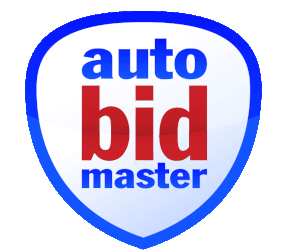Online car auctions have a number of straightforward terms that are good to know. Understanding these will help you keep the auction process clear and give you the confidence to bid and win. On every vehicle (lot) listing, you’ll see one of these three terms:
Pure Sale
These are good because there is no minimum bid. Low ballers love these. The lot will be won by the highest bid, no matter how low. You probably won’t see a pristine Rolls Royce listed as a Pure Sale, but you’re probably not looking to buy a Rolls.
On Approval
This is where the seller has reserved the right to approve the final bid. There is no minimum bid listed, but the seller has a number in his head and it’s going to stay there until the live bidding is over. Once the seller sees the final bid, he responds and may accept, reject or counter. During this time you’re still obligated to honor your bid. If the seller doesn’t respond within the allotted time period, you’re released from any obligation to pay. Let’s say the seller misses the deadline by a day or two, you still may get the car when the seller responds, but it’s totally your option if you want to pay.
On Minimum Bid
This one doesn’t take a genius go figure out; the sellers wants a minimum. But let’s say the bidding never reaches the minimum and you end up as the high bidder. Then the seller accepts or rejects your bid. If the seller chooses to accept your bid within the allowed timeframe, then you are bound by your bid and are obligated to pay. (Good news, you got the car for less than minimum.) If the time period for the seller to reply expires, then you’re not obligated to buy the vehicle.
For both situations, On Approval and Minimum Bid, if the seller comes back with a counter offer, then that will be conducted online through an interface and you’ll be notified. This helps the two of you counter-bid. If you’d like, we’re happy to help you place your bids or negotiate with the seller. Just call and ask.
Here are some other terms you’ll see
Runs and Drives
At the time the vehicle arrived at Copart’s location, Copart verified that the vehicle started, could be put into gear, and could move forward under its own power. But keep in mind that this is no guarantee that the vehicle is roadworthy or can be driven lawfully in any state. There also is no guarantee that the vehicle will start—maybe the battery drained or something—or move forward under its own power at the time you pick it up at Copart’s location. So it’s your responsibly to research anything you want to bid on.
If you want to inspect the car in person, go to the location and you can buy a pass to enter the yard and check-out your car. The price of the pass may vary, but it’s usually $20.
Est. Retail Value
This is a number the seller supplies to Copart for the value of the lot. If the lot has been damaged, this estimate reflects the value prior to the damage. This is designed to help you see what the car might be worth if you decide to repair it. Remember though, this is only an estimate and neither Copart nor AutoBidMaster makes any claim as to the accuracy of the number. To verify the value, you may want to check one of the many resources that list used car values, something like the Kelly Blue Book or another service.
Now that you know these standard terms you can bid with confidence and get the best price available.
- JK Auto Import: An AutoBidMaster and Copart Success Story - January 24, 2024
- 5 Frequently Replaced Car Parts You Can Salvage from Junk Cars - October 16, 2023
- Top Muscle Cars for Your Next Restoration Project - October 9, 2023





